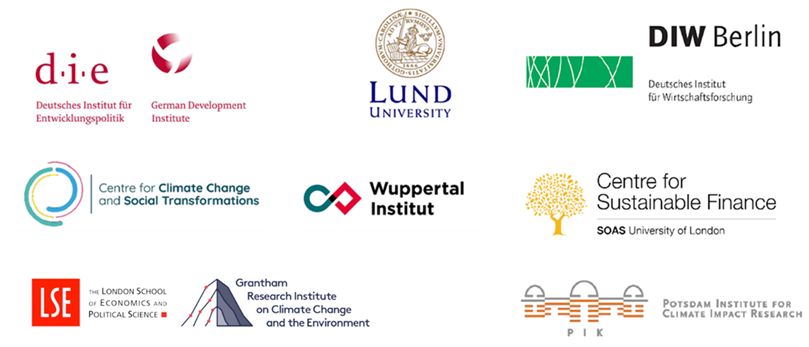

Event Type
Virtual DiscussionLocation/Date
Online, 26.04.2022Organiser
German Development Institute / Deutsches Institut für Entwicklungspolitik (DIE), SOAS Centre for Sustainable Finance, London School of Economics and Political Science, Grantham Research Institute on Climate Change and the Environment
Finance is critical to achieving deep decarbonisation by 2050. Article 2.i.c of the 2015 Paris Agreement sets out the goal of “making finance flows consistent with a pathway towards low greenhouse gas emissions and climate-resilient development”. Across the financial system, banks and investors need not only to analyse and mitigate physical and transition risks, they also need to align their portfolios with net-zero. Investment in and lending to carbon-intensive activities need to be rapidly phased out, while investment in new, low-carbon infrastructure – especially in the energy and transport sectors –, the retrofitting of the existing building stock, sustainable land use, and the development and deployment of low carbon technology needs to be scaled up. This will not happen by itself. Monetary and financial authorities need to set the framework conditions that will ensure that banks and financial markets integrate climate in all decision-making processes. Prudential supervisors should make net-zero a core element of supervisory practice at micro and macro levels, aligning supervisory expectations and prudential instruments with net-zero (Dikau, Robins, Volz 2021). Financial policymakers need to consider strategies for supporting a just transition to net-zero, harnessing the capacity of public as well as private financial institutions and of new financial technologies (Robins and Rydge, 2019; Robins et al., 2020; Volz et al., 2020). Last but not least, policies need to be devised to scale up international climate finance to support adaptation and a just transition in developing and emerging economies.
Agenda
Which actions should central banks and financial supervisors take to align financial flows with climate goals and support a scaling up of investment in the low-carbon economy?
- Irene Monasterolo, EDHEC Business School and EDHEC-Risk Institute
What policies are needed to boost climate finance?
- Barbara Buchner, Climate Policy Initiative (CPI)
What is the role of public financial institutions in accelerating the low-carbon transition?
- Stephany Griffith-Jones, Columbia University
How can the financial sector contribute to a just transition?
- Nick Robins, Grantham Research Institute on Climate Change & the Environment, London School of Economics (LSE)
What is the role of FinTech in facilitating investment in the net-zero transition?
- Marianne Haahr, Green Digital Finance Alliance (GDFA)
Moderator
- Ulrich Volz, SOAS – University of London and German Development Institute / Deutsches Institut für Entwicklungspolitik (DIE)
Please note
During our events photos and/or videos may be taken which may be published in various media for the purposes of documentation and PR activities. You have the right at any time to point out to the photographer or videographer that you do not want to be photographed or filmed.
Bonner Allianz für Nachhaltigkeitsforschung
German Institute of Development and Sustainability (IDOS)
Tulpenfeld 6
53113 Bonn